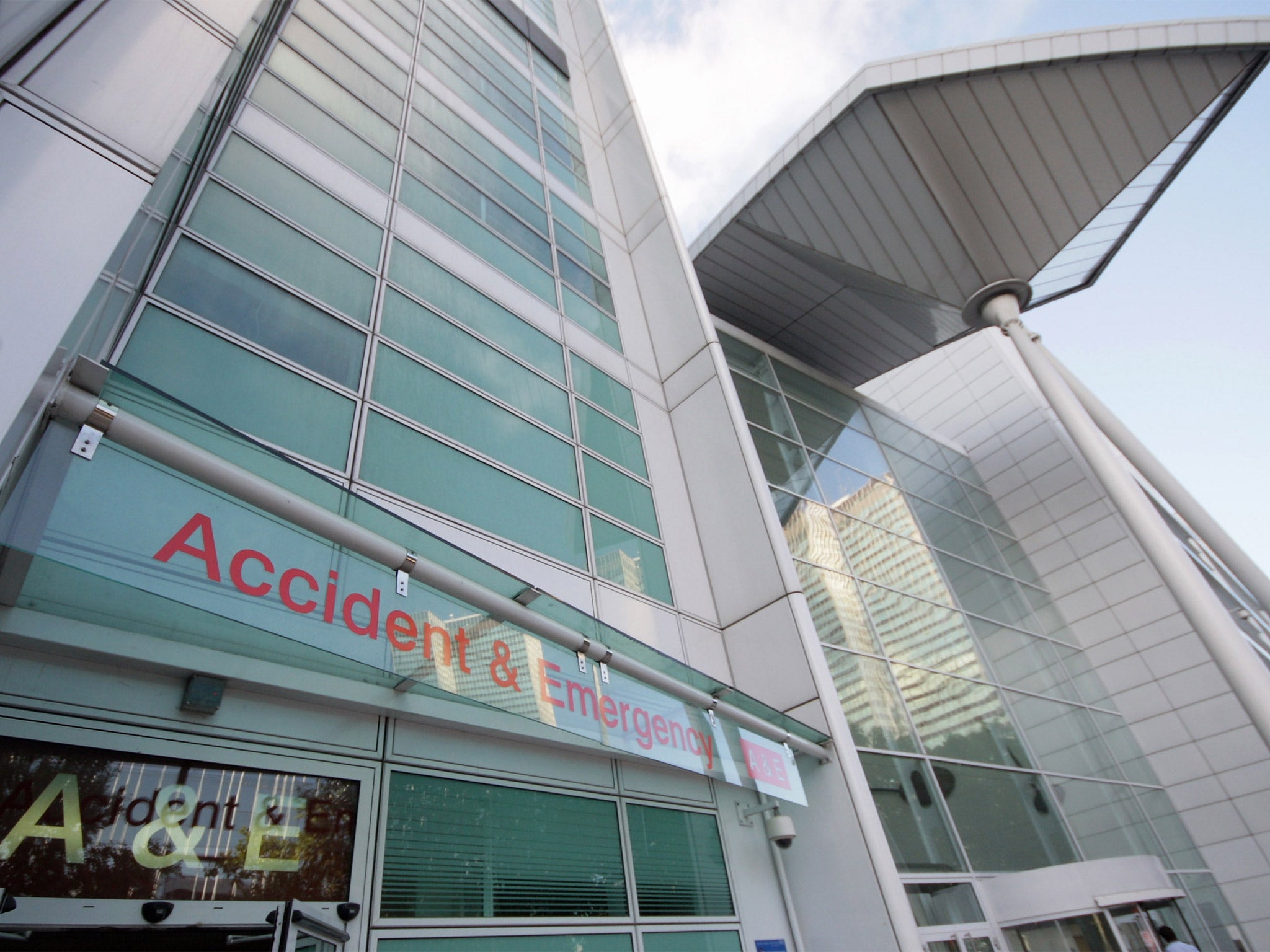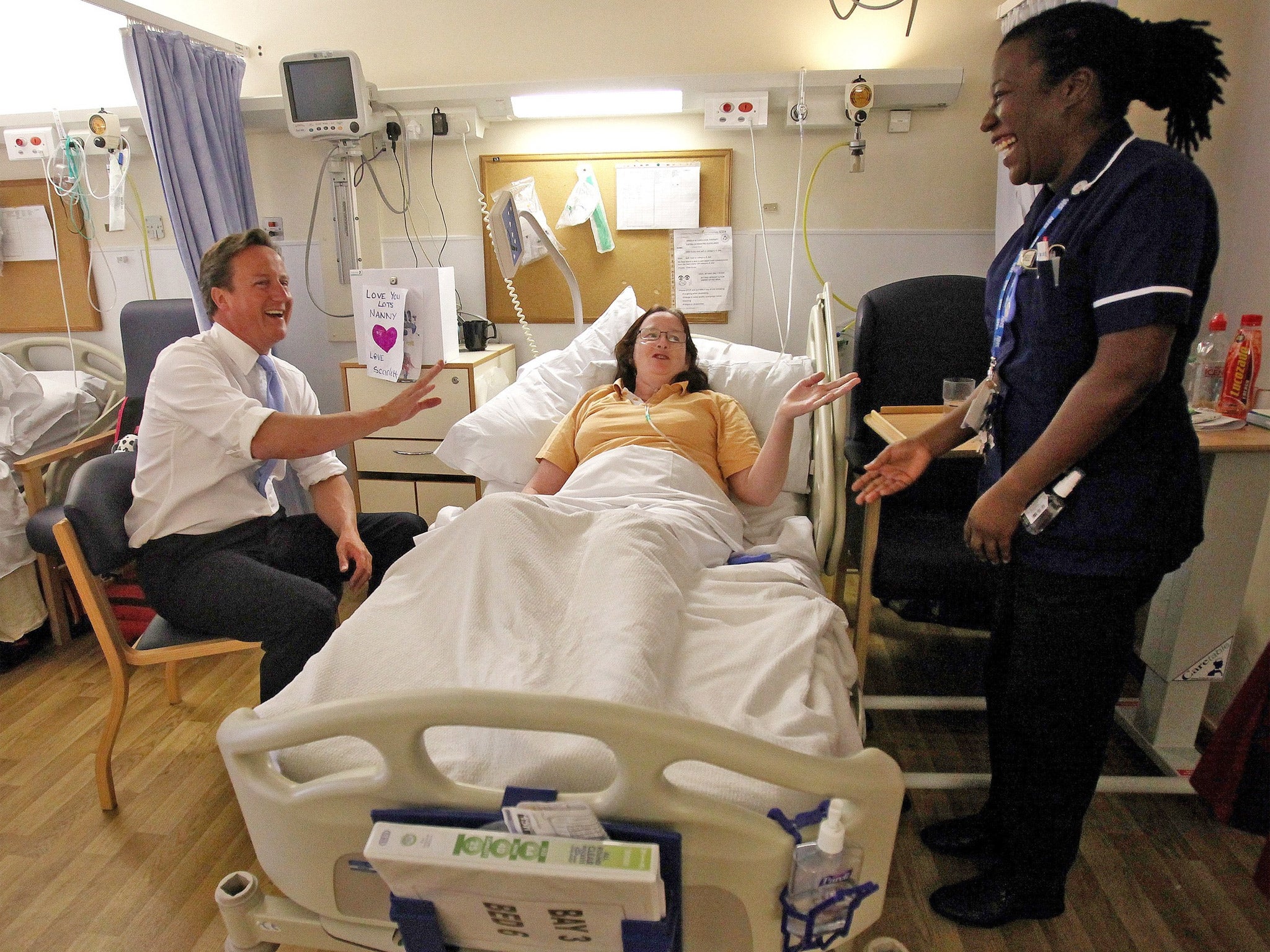Exclusive: How private firms make quick killing from PFI
Companies earn hundreds of millions by selling on 25-year contracts for hospitals and schools awarded to them by the last government

Your support helps us to tell the story
From reproductive rights to climate change to Big Tech, The Independent is on the ground when the story is developing. Whether it's investigating the financials of Elon Musk's pro-Trump PAC or producing our latest documentary, 'The A Word', which shines a light on the American women fighting for reproductive rights, we know how important it is to parse out the facts from the messaging.
At such a critical moment in US history, we need reporters on the ground. Your donation allows us to keep sending journalists to speak to both sides of the story.
The Independent is trusted by Americans across the entire political spectrum. And unlike many other quality news outlets, we choose not to lock Americans out of our reporting and analysis with paywalls. We believe quality journalism should be available to everyone, paid for by those who can afford it.
Your support makes all the difference.Private contractors have pocketed hundreds of millions of pounds of profits in the past four years by exploiting deals that were controversially awarded to them by the last Labour government.
Companies that were awarded contracts to build and maintain state schools for 25 years have been doubling their money by “flipping”, or selling on, the Private Finance Initiative (PFIs) projects just four years after finishing them.
The chair of the Commons Public Accounts Committee, Margaret Hodge, described the huge profits as “a total scandal” and said it meant “we have all been ripped off”. The Independent’s findings shine a new light on how private companies have made fortunes in pure profit from the rising value of the schools and hospitals they have built – value which critics say could have been retained by the taxpayer.
Four contractors alone made profits of more than £300m. Of the companies studied – Balfour Beatty, Carillion, Interserve and Kier – Balfour Beatty is by far the biggest beneficiary of the rising value of its Private Finance Initiative and Public Private Partnership deals. It alone has made profits of £188.9m.
Only this week, it flipped the University Hospital of North Durham and seven schools in Knowsley, near Liverpool, generating a gain of £51m. In the case of the schools, it doubled its money from the £19m investment made when the 27-year contracts were awarded in 2007 and 2011.
The Durham hospital, which was one of the first hospitals to be built under PFI-style private financing, was dogged with controversy about bed shortages and poor design when it opened.
Carillion has made £12.2m, Kier £20.7m and Interserve £90m, according to stock market filings and company documents.
Ms Hodge said: “It is a scandal, a total scandal that the public sector has privatised these projects so badly. We have all been ripped off.”
The Labour MP acknowledged that many of the worst PFI and PPP cases were negotiated by the Labour government under Tony Blair and Gordon Brown, saying: “I’m afraid we got it wrong. I was a supporter at the time but I have completely gone off the whole concept. We got seduced by PFI.”
She added that it was especially “scandalous” that many of the funds that are buying up the contracts are based in tax havens. One of the early arguments in favour of PFIs was that taxpayers would benefit from contractors’ profits due to the corporation taxes they would pay. “But now the profits are going offshore and to shareholders,” she said.
One of the biggest so-called infrastructure funds buying the contracts, HICL, has its tax domicile in Guernsey and was specifically set up by HSBC to buy up such contracts. Another, Dalmore Holdings, is run by a team of former bankers and accountants in London with shareholders including a number of Cayman Island investment funds. AMP Capital, an Australian fund manager, is also a major investor in such deals.
NHS experts said that, in the case of the hospitals, the profit from selling the contracts could be matched by the amount the companies have made in their annual charges for running the sites.
Known as unitary charges, these are fixed with a guaranteed increase every year for the term of the contract. While paid to cover non-clinical service charges like maintenance, they can also be topped up with big profits from revenues from shops and cafes on site, as well as lucrative car parking revenues.

Among the most profitable contracts to be flipped were Balfour Beatty’s project to build and run University College London Hospital, which turned a profit of £44m, and Kier’s West Berkshire Hospital and Hinchingbrooke Hospital, which together made a £6.8m profit. Interserve flipped a group of 19 separate investments in schools, hospitals and prisons to Dalmore in one batch bringing in a combined profit of £60m.
John Lister, of NHS pressure group Health Emergency, said: “We now have a situation where several major hospitals are in major financial difficulties because of the debts and fixed unitary charges they are saddled with from PFI deals.”
Kier Project Investment said in a statement: “The profit that Kier Project Investment has realised over the last three financial years (June 2011 to June 2013) is £20.7m.
“This figure was realised across nine different schemes that are all designed to deliver significant benefits to local communities – including schools, hospitals, fire stations, a library and a care home – and reflects the fact that when the initial investment is made we take on significant development risk in designing, building and delivering a bespoke community facility.”
Case study: North Durham
University Hospital of North Durham was one of the first and most controversial to be built under PFI. Balfour Beatty’s Consort Healthcare PFI division contracted with the local NHS trust to design, build and run the hospital for 30 years under a trailblazing contract signed in 1998. It replaced the local Dryburn hospital in 2001 and was described by the trust chairman Kevin Earley as “an absolutely huge leap in healthcare”.
But the leap seemed to go backwards – after 14 weeks, the hospital was short of 54 beds. Unison, a union, claimed patients were kept waiting for up to 12 hours in A&E because of staff shortages. Despite its mixed local reputation, University Hospital of North Durham managed to earn Balfour Beatty £51m this week in probably its most successful PFI “flip” to date.
Richard Holmes
Join our commenting forum
Join thought-provoking conversations, follow other Independent readers and see their replies
Comments